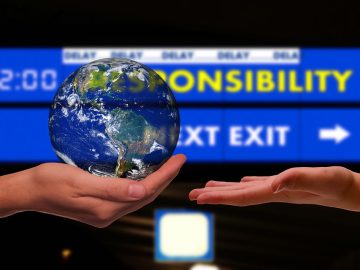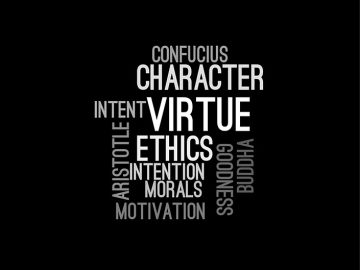Leading technology and cross-cultural analysis expert Dr. Gwyneth Sutherlin said her biggest concern with AI is the lack of participation and voices that go into AI decision-making.
Sutherlin was speaking on the ethics of artificial intelligence at the University of Florida’s Malachowsky Hall on Wednesday.
“I am one individual, I have one moral compass. Now, if I am designing a piece of technology but I have two different sets of reasoning, which one is it representing? Who sets the boundaries of how the machine is reasoning?” she asked the room of 25 students and faculty, with 15 more listening on a Zoom livestream.
Sullivan’s speech emphasized the importance of reaching a global audience of authorship, allowing every human to contribute to the evolving model of artificial intelligence by asking questions to AI chatbots.
She said that AI is not different from any other created tool. Because it reflects humanity, diverse voices and authors are necessary for AI to accurately reflect human perspectives.
“It can participate alongside us, I don’t think it will diminish us. I see it as a tool that works with us,” she said.
Sullivan emphasized the natural progression of disagreement as a productive tool for building a new discipline, especially when it involves a technology with ethical considerations.
In an exercise to highlight the importance of global voices contributing to one definition, she asked the room to define soup. The audience chuckled at this seemingly unrelated exercise.
“A liquid form of food?” an audience member suggested.
Sullivan shook her head with a smile.
“There are countries in which soup is in solid form, give me another example,” she said.
“A dish in which you mix lots of things?” another person asked.
Sullivan smiled again.
“Is salad a soup?” Sullivan asked. Audience members shook their heads. This exercise continued with a few more attempted definitions, all of which were debunked by Sullivan.
“Defining and describing it is not as easy as you may expect,” she said. After practicing this exercise in various countries around the world, no one has ever reached a consensus on the definition for soup.
“And if we have one definition, how else can all these ideas and concepts be represented in the discussion? If you want to translate that to a machine, you have to repeat that process. You want to make sure you have a lot of authors, otherwise you get one definition of soup,” she said.

An attentive audience listens to a presentation by Dr. Gwyneth Sutherlin, a leading technology and cross-cultural analysis expert, as she discusses the ethics of artificial intelligence at the University of Florida’s Malachowsky Hall on Wednesday, April 2, 2025. (Sam Zimmerman/WUFT News)
Sullivan explained how in early stages of product development and managing ethical considerations, developers often rely on a single set of experts, limiting diverse perspectives.
“We have so many different voices that can help us understand potential impacts,” she said
Sean Cook, a UF senior computer engineering student, expressed fear that AI will steal human work without attribution.
“I worry about the potential for plagiarism and not giving proper credit to people who have done stuff,” he said.
Sullivan explained that not everyone shares the concept of creation and contribution. Maybe some contributors will get their names in a textbook explaining how a model works, but the shared tool requires further debate on what contribution recognition looks like.
Senior computer science student Cohen Adkins said he is worried about AI interfering with the job market.
“My biggest fear is that it might take away a lot of jobs from people,” he said.
Sullivan said she does not share this concern but recognizes that she is not in the same position as a college student. She said that other technological innovations have created occupational fear without truly disrupting the job market.
“Even with the immense speed and feats that we see different models achieving, there are still significant limitations. The brainpower we have as human beings well exceeds this tool,” she said.






